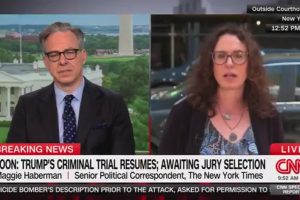
One often hears school libraries’ decisions to remove certain books labeled “book bans.” Some object: Such removals don’t actually ban the book; the book remains available at bookstores, and often at public libraries. It’s just that the school system has decided not to make the book available to its students as something that the system endorses as worth reading. (Note that this argument can be independent of whether the libraries’ actions violate the First Amendment; the legal question is unsettled, but independently of the legal question one might argue that such actions should still be condemned.)
One also often hears social media platforms’ decisions to block certain posts, or remove certain accounts, labeled “censorship.” Some object: Such actions don’t actually use the law to punish speech, or even make such speech unavailable. It’s just that the platform has decided not to make the book available to its users as something that the platform endorses as worth hosting. (Note that this argument can be independent of whether the platforms’ actions violate the First Amendment; they likely don’t, at least absent government coercion, since they aren’t state action, but independently of the legal question one might argue that such actions should still be condemned.)
Here’s my narrow observation for this post: One way of thinking about these controversies has to do with Justice Holmes’ argument in U.S. ex rel. Milwaukee Social Democratic Publishing Co. v. Burleson (1921) against viewpoint-based restrictions on what can be mailed through the post office. (That argument was in the dissent, and was technically focused on a statutory construction question, but the Court eventually adopted it as a constitutional matter.) Holmes wrote,
The United States may give up the Post Office when it sees fit, but while it carries it on the use of the mails is almost as much a part of free speech as the right to use our tongues ….
And I take it that he was talking not just about abstract legal categories, but about the practical significance of the post office in the communications system of the day—and indeed in the intellectual lives of the people of the day.
The post office was so important, and had so long been used as a means for distributing a vast range of information, that it ought to continue as a medium where communication is largely unconstrained. This didn’t have to extend to all government property; I doubt that Holmes would have said, for instance, that the ability to post things on government building walls “is almost as much a part of free speech as the right to use our tongues.” But it did extend to this particular vitally important medium of communication.
I take it that the people who complain about school library book bans and social media censorship take a similar view. The use of a library (including a school library) is almost as much a part of free speech as the right to use our tongues, or at least as the right to buy those books that someone is willing to sell us. The use of Facebook or Twitter is almost as much a part of free speech as the right to use our tongues, or at least as the right to send letters to people or to publish and mail a newsletter (if you had the money to do it).
Conversely, others may disagree. The use of a school library, they might argue, has always allowed you just to see those books that the school chooses to recommend for you, as part of its discharge of its educational mission (as the librarian, principal, school board, or state legislature understands that mission to be). The use of private social media networks, they might argue, is more like the ability to get your letters to the editor published in a newspaper, something that none of us has had a right to do (whether a legal right or a de facto practical ability). It’s largely a question of the social significance of the entity.
To be sure, this doesn’t resolve the constitutional or legal questions. As I mentioned, it’s not clear whether the First Amendment limits a school library’s ability to remove books from its bookshelves based on the books’ viewpoints (though it is clear that a state legislature could constrain that ability, if it wishes). The First Amendment also doesn’t generally limit a social media platform’s ability to remove posts (and there’s of course a great deal of constitutional debate about whether Congress or a state legislature could constrain that ability). But I think it does help us understand why some people see a book ban where others just see a decision not to promote, and why some people see social media censorship where others just see a decision not to host.



